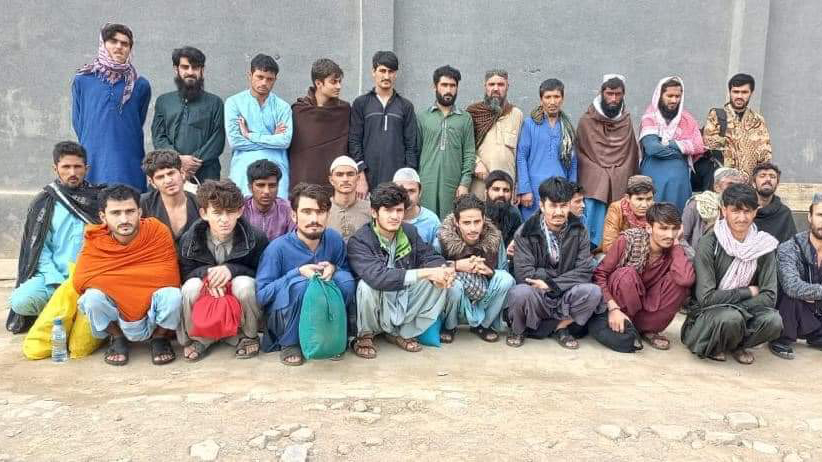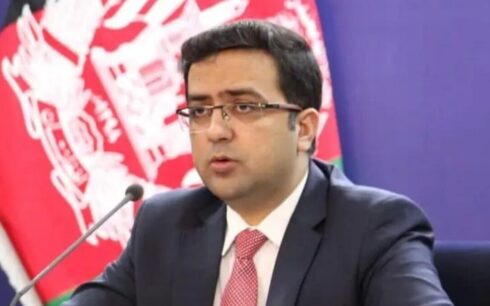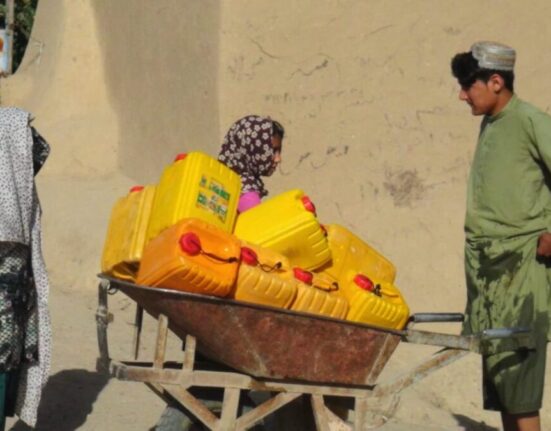A number of Afghan refugees, who fled to Pakistan when the Taliban came into power in August last year, said they are facing abuse, mistreatment and extortion at the hands of Pakistani police.
This comes after Pakistani media reported Saturday that at least 122 Afghan refugees, including 89 men, 20 children and 13 women, have been arrested by the Pakistani police for not having the required documents.
One refugee told Amu that he could not afford the exorbitant rate that “visa dealers” want.
“I applied for a visa many times but it is not known when I will get it. Some dealers ask $1,000 for a visa the same day; but I did not have the money; therefore, I decided to travel illegally to Pakistan,” said Mohammad Hashim, who is now in Pakistan.
Tahir Khan, a Pakistani journalist, said mistreatment of refugees is not part of the Pakistani government’s policy.
On November 10, Pakistani police raided at least six houses where Afghan refugees lived in Rawalpindi, Islamabad, and fined them, according to two refugees in Pakistan.
“It was around 1pm on Thursday, Nov. 10. The police came to our house. We all had passports and visas, but they made excuses and threatened to send us to prison. Finally, they fined us 15,000 Pakistani rupees,” said Faisal, an Afghan refugee in Pakistan.
Ahmad, an exiled Afghan journalist in Pakistan, said he had a visa but was fined 3,000 Pakistani rupees by the police on Thursday night.
“Police asked me to get out of the car. I gave them my visa, but they said that I would have to go to the police headquarters. Eventually, they took 3,000 Pakistani rupees from me and I was freed,” he added.
On Saturday, Taliban foreign minister Amir Khan Muttaqi met with Pakistan charge d’affaires in Kabul. In this meeting, according to the Taliban foreign ministry, Muttaqi said that the treatment of Afghan refugees in Pakistan is unfair.
The number of Afghan refugees in Pakistan has significantly increased since last August after the fall of the previous government. Thousands of Afghanistan citizens, including journalists, former security force members and women’s rights activists are waiting in the neighboring country for their asylum cases to be processed in European countries and the US.
In May, a report by the European Union Agency for Asylum, EUAA, said that between January 2021 and February 2022, UNHCR documented 117,547 new arrivals from Afghanistan in Pakistan, with a significant peak of 35,289 persons in August 2021.
In recent years, Pakistan has shifted its policy towards Afghan refugees. Between early 2017 and January 2022, the country reportedly fenced around 90% of its border with Afghanistan, making formal and informal border crossings much more difficult to traverse, according to the European agency. However, undocumented crossings continue to occur due to the ‘porous’ nature of the border.
As of January 2022, there were nearly three million Afghans living in Pakistan, including around 1.4 million of them with Proof of Registration (PoR), at least 840,000 hold an Afghan Citizen Card (ACC), and an estimated 775,000 are undocumented, EUAA report said.
While PoR and ACC cardholders are offered limited protection, mainly from refoulement, the agency said undocumented Afghans are exposed to arrest, detention and deportation.
Reports indicate thousands of Afghans cross the Torkham and Spin Boldak crossings on a daily basis, most of whom do not hold valid entry permits and visas.





